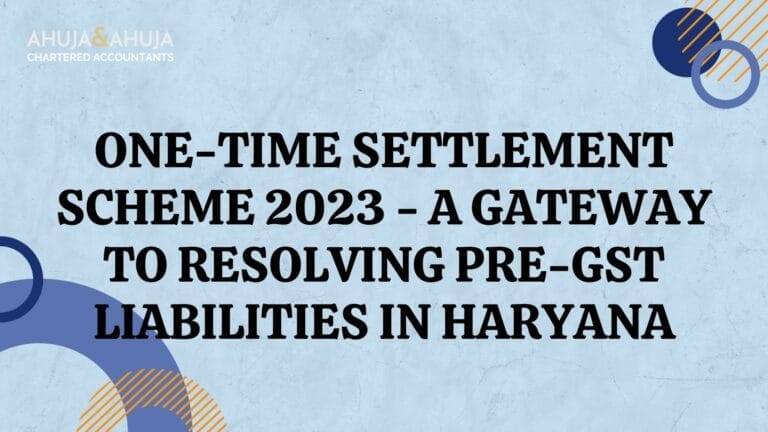GST Time Limit Not Mandatory under Sec 62(2): Madras High Court
The Goods and Services Tax (GST) has changed the landscape of taxation in India, integrating various indirect taxes into a single streamlined system.
However, the transition hasn’t been entirely smooth for all, especially when it comes to the compliance obligations like timely filing of returns.
The recent judgment from the Madras High Court in the case of Comfort Shoe Components vs. Assistant Commissioner sheds light on a crucial aspect of these obligations under GST Section 62(2).
This ruling is particularly significant for taxpayers overwhelmed by stringent deadlines and the repercussions of failing to meet them.
Background on the Case
The controversy in question arose when the petitioner, Comfort Shoe Components, faced challenges in filing their GST returns for December 2022, January 2023, and February 2023 within the prescribed deadlines due to financial hardships.
In response, the GST authority proceeded to issue ‘best judgment assessment orders’ as per Section 62(1) of the GST Act.
These orders, dated 28.03.2023 and 10.04.2023, were a direct consequence of the non-filing and were meant to be temporary, yet binding, assessments of the GST dues, necessitated by the lack of filed returns.
As per Section 62(2) of the GST Act, if a taxpayer files their overdue returns within 30 days of these assessment orders being served, the orders are to be withdrawn.
This provision aims to ensure prompt compliance while offering a small window for rectification in case of delays.
However, the critical contention in this case was whether this 30-day period was a rigid deadline beyond which the taxpayer would lose the right to have these provisional assessments withdrawn.
Legal Analysis and Interpretation
The crux of the matter revolved around the interpretation of the 30-day timeline stipulated by Section 62(2).
The court was tasked with determining whether this timeline was mandatory and punitive, or if it was a directory guideline that could be extended under certain circumstances without severe repercussions.
This analysis becomes even more relevant as GST compliance involves various other nuanced aspects like GST on rents, where the applicability varies based on commercial versus residential use, and GST Input Service Distributor mechanisms, which can complicate the tax return process further.
In its deliberations, the Court observed that the imposition of a strict non-extendable deadline could be overly harsh, especially under conditions like those faced by the petitioner.
By ruling that the 30-day limit is directory, the Court allowed for a more flexible interpretation and consideration of any application for condonation of delay in this regard. This interpretation aligns with the principles of fairness and practicality in tax administration and recognizes the realities faced by businesses, which can often be unpredictable and challenging.
Decision Overview
The court ultimately decreed that the 30-day deadline under Section 62(2) is not absolute. This means that taxpayers can file their returns beyond this period if they can provide valid reasons for the delay.
However, it is crucial that during such late filings, taxpayers should be prepared to face some statutory liabilities such as interest or late fees, emphasizing the importance of staying informed about GST checklist and action points.
This ruling profoundly impacts how authorities and taxpayers view deadlines for filing GST returns. It offers relief to those who might face unavoidable delays, ensuring that they are not unfairly penalized for circumstances beyond their control, while also maintaining the integrity of the tax system.
As we continue to unpack the implications of this High Court decision, the next sections will delve deeper into what this flexibility means for future compliance and how businesses can effectively navigate the complexities of GST, including areas such as GST Input Credit on CSR expenditure.
Future Implications of the Ruling and Practical Advice for Compliance
Implications of the Court’s Ruling
The decision by the Madras High Court to treat the 30-day deadline under GST Section 62(2) as directory rather than mandatory opens up new avenues for GST compliance.
It highlights a significant shift towards a more understanding and flexible tax administration, particularly in cases where taxpayers face genuine difficulties.
This ruling reassures businesses that the tax system can accommodate unforeseen challenges, thereby reducing anxiety over potential harsh penalties for delays beyond their control.
Importantly, it also sets a precedent for other courts and tribunals, signaling a possible leniency in similar cases, provided the reasons for delays are justifiable and well-documented.
Practical Compliance Advice
Given the court’s recognition of the challenges in meeting strict deadlines, businesses should take proactive steps to ensure compliance while being aware of the avenues available in case of delays.
Here are several practical tips:
- Timely Filing: Despite the leniency shown in this judgment, the primary goal should always be to file GST returns on time. This avoids complications and the need for legal interventions.
- Documentation and Evidence: In cases where delays are inevitable, maintaining thorough documentation to support the reasons for the delay (such as financial hardship evidence) is crucial. This documentation will be vital if it becomes necessary to plead your case before a tax authority or the court.
- Seek Professional Advice: Understanding the nuances of GST, from GST return filing to specific issues like input service distribution or GST on corporate social responsibility expenditures, can be complex. Engaging with GST professionals can provide clarity and strategic direction, ensuring that your comr45pliance meets both the letter and the spirit of the law.
- Regular Updates: Tax laws and interpretations can change. Keeping abreast of the latest GST guidelines, court rulings, and best practices is essential for effective compliance. Regularly reviewing GST checklists and action points can also aid in this endeavor.
Conclusion
The Madras High Court’s decision is a watershed moment for GST jurisprudence in India, emphasizing that while compliance is mandatory, the mechanisms of enforcement must also be reasonable and adaptable to the realities of business operations.
This ruling not only provides immediate relief and guidance for businesses struggling with timely GST return filings but also reinforces the flexibility the tax system allows to foster fair and equitable treatment of taxpayers.
Businesses should leverage this ruling to better manage their GST obligations, armed with the knowledge that the law can accommodate challenges that are genuinely beyond their control.
By staying informed, prepared, and proactive, businesses can navigate GST compliance effectively, minimizing risks and ensuring operational smoothness.
Disclaimer
The materials provided herein are solely for educational and informational purposes. No attorney/professional-client relationship is created when you access or use the site or the materials. The information presented on this site does not constitute legal or professional advice and should not be relied upon for such purposes or used as a substitute for professional or legal advice.







